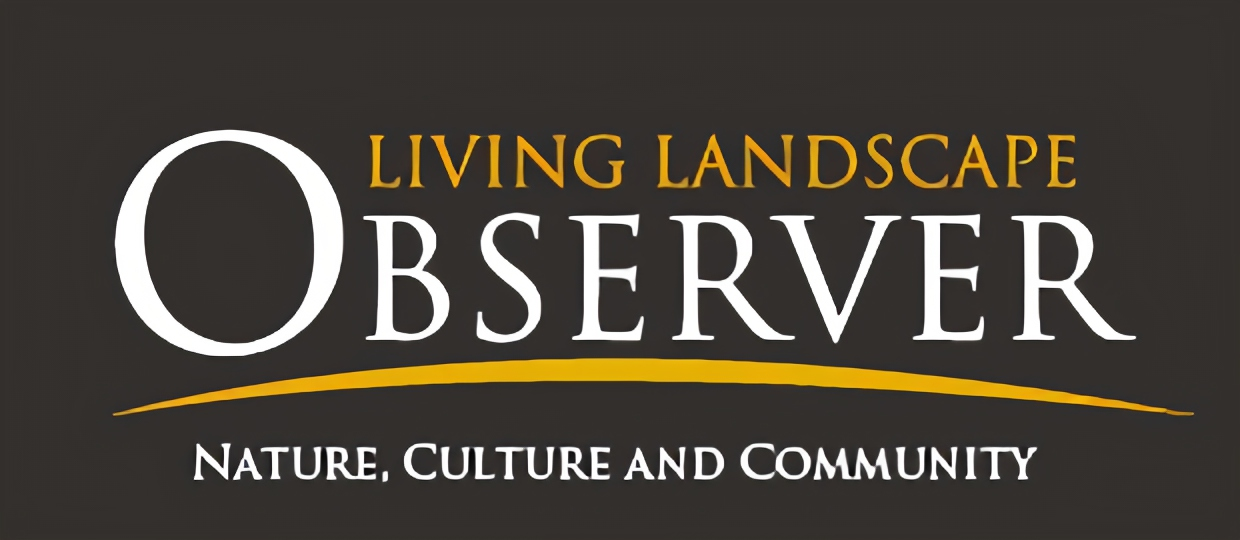To provide observations and information on the emerging fields of landscape scale conservation, heritage preservation, and sustainable community development.
Newsletter
Stay up-to-date with the latest nature, culture and community news.
We won’t spam you or share your information. Newsletters are sent approximately 10 times a year. Unsubscribe at any time.
Our Predictions for Living Landscapes in 2013: How Did We Do?
National Trust for Historic Preservation: A Tale of Two Sessions
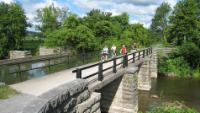
Landscape Scale Community and Economic Development
Creating and implementing programs to jump start community and economic development is never easy. However, there are many benefits of doing so at a landscape scale. The opportunity for regional promotions, sharing capacity building initiatives, and assembling a critical mass of attractions are just a few. What are some successful examples of this work and what might the future hold?
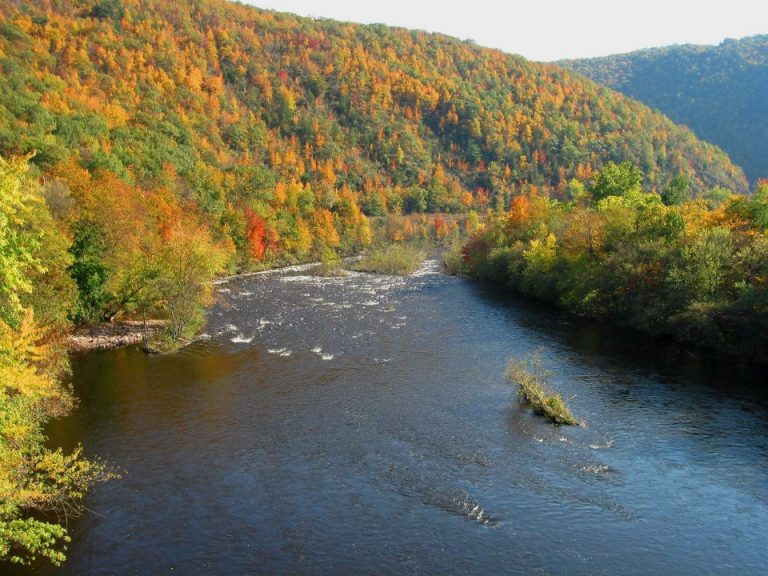
The Role of Storytelling in Landscape Conservation
The idea of using cultural objects or site-specific historic places as a way convey a story is customary practice in heritage interpretation. However, storytelling on a landscape scale is less common. Heritage areas and the United States National Heritage Area (NHA) program in particular have demonstrated the power of this approach to build partnerships and unify a region. More recently the movement to conserve landscapes at scale has recognized the significance of storytelling to connect people to the resource. More challenging is telling the less visible stories.
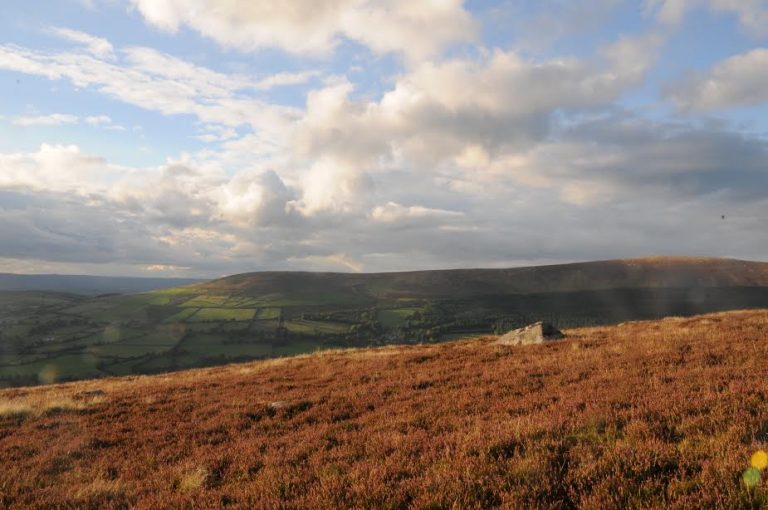
Naturecultrues Dialogue: Rural Landscapes and Integrated Management
This NatureCultures dialogue explores rural landscapes where nature and culture intersect in myriad ways. These places have much to teach us about taking integrative approaches to conservation that bring together diverse values, disciplines and aims. Spanning a vast area of the planet’s surface, these landscapes and waterscapes serve as the foundation of economic livelihoods and food security worldwide, while encompassing an array of tangible and intangible cultural heritage values that are interlinked with natural values such as biodiversity, agrobiodiversity and ecosystem services.
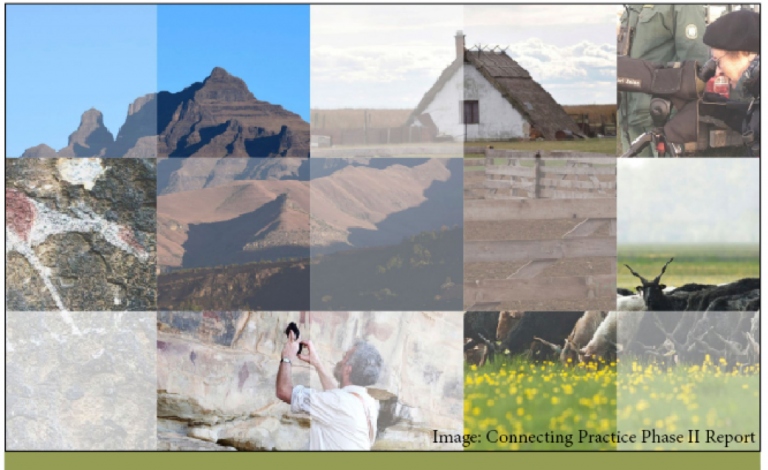
Naturecultures Dialogue: Connecting Practice
Since 2013, ICOMOS and IUCN have been conducting ‘Connecting Practice’ – a joint project aimed at developing new methods and conservation strategies that recognize and sustain the interconnected character of the natural, cultural, and social values of World Heritage sites.

US Public Lands: Where to Now?
While the big excitement is the passage of the America’s Great Outdoors Act, there is a lot more happening on our public lands and most of it is not good news. Negative impact include the shrinking of our national monuments as well as proposals for energy extraction and the roll back of regulatory protections.These actions leave cultural and natural resources vulnerable to destruction. But what about the future, where should we be heading?

Landscape Scale Community and Economic Development
Creating and implementing programs to jump start community and economic development is never easy. However, there are many benefits of doing so at a landscape scale. The opportunity for regional promotions, sharing capacity building initiatives, and assembling a critical mass of attractions are just a few. What are some successful examples of this work and what might the future hold?

The Role of Storytelling in Landscape Conservation
The idea of using cultural objects or site-specific historic places as a way convey a story is customary practice in heritage interpretation. However, storytelling on a landscape scale is less common. Heritage areas and the United States National Heritage Area (NHA) program in particular have demonstrated the power of this approach to build partnerships and unify a region. More recently the movement to conserve landscapes at scale has recognized the significance of storytelling to connect people to the resource. More challenging is telling the less visible stories.

Naturecultrues Dialogue: Rural Landscapes and Integrated Management
This NatureCultures dialogue explores rural landscapes where nature and culture intersect in myriad ways. These places have much to teach us about taking integrative approaches to conservation that bring together diverse values, disciplines and aims. Spanning a vast area of the planet’s surface, these landscapes and waterscapes serve as the foundation of economic livelihoods and food security worldwide, while encompassing an array of tangible and intangible cultural heritage values that are interlinked with natural values such as biodiversity, agrobiodiversity and ecosystem services.

Naturecultures Dialogue: Connecting Practice
Since 2013, ICOMOS and IUCN have been conducting ‘Connecting Practice’ – a joint project aimed at developing new methods and conservation strategies that recognize and sustain the interconnected character of the natural, cultural, and social values of World Heritage sites.

US Public Lands: Where to Now?
While the big excitement is the passage of the America’s Great Outdoors Act, there is a lot more happening on our public lands and most of it is not good news. Negative impact include the shrinking of our national monuments as well as proposals for energy extraction and the roll back of regulatory protections.These actions leave cultural and natural resources vulnerable to destruction. But what about the future, where should we be heading?
